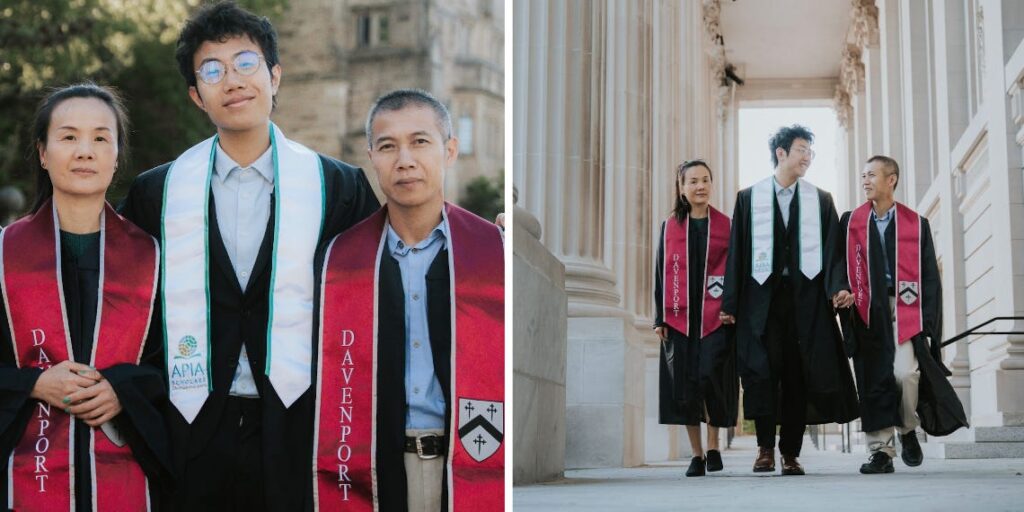The night before my senior year at Yale began, my mom and I joked about finding each other in the next lifetime, this time as classmates. We envisioned ourselves in the back of a lecture hall, discussing which New Haven restaurant to try for dinner.
“And Dad?” I asked.
“He’d be sitting in the front row,” Mom laughed. “You know how he loves to chat.”
That playful fantasy turned into reality in May when my immigrant parents visited Yale for the first time to celebrate my graduation. Neither graduated from high school in rural China, but they made the trip to honor my accomplishment.
For years, complex logistics and sacrifices kept them away. My father was often in New York, caring for my ailing grandparents, while my mother hesitated to travel alone.
They missed every family event Yale hosted. Many families had stories like ours, where immigrant parents navigate the challenges of demanding work schedules and language barriers. Increasing scrutiny on non-citizens also made domestic travel daunting.
I was determined to make my graduation a moment to compensate for all the missed bonding time. What I didn’t anticipate was how deeply moving their presence would be on campus.
I set out to give my parents a complete college experience. I coordinated everything from train transfers to an ambitious itinerary filled with museums, restaurants, and landmarks. I even coached my mom on what to say if anyone asked for ID.
I wanted them to join in Yale’s Class Day traditions: decorating personalized graduation caps, enjoying the annual comedy skit, and listening to diverse faith representatives during the Baccalaureate Ceremony.
For me, nothing surpassed the thought of walking across the stage, turning to the audience, and catching their proud smiles. I wanted them to witness their son after so much struggle.
However, when they arrived, I was surprised to see them looking lost amid the Ivy League setting. Other families moved about confidently, often returning as graduates themselves. I noticed my parents frequently apologizing, as they brushed past security or stepped into the way of a photo shoot.
Their humility moved me, but it was their vigilance that truly struck me. It hurt to see how they tried to avoid being an inconvenience—an embodiment of what it means to be immigrants. They had set aside their discomforts to support me in a space that had once felt unimaginable.
This graduation was as much theirs as it was mine.
Having my parents on campus reminded me to treasure our moments together rather than dwell on the past. Although they will miss future milestones, like my time in medical school at Stanford, I hold pride in honoring their sacrifices.
Before their three-day visit concluded, I took them to Marsh Hall, where I first attended a biology course. It’s the largest classroom at Yale, seating 483 students. They excitedly explored the room, marveling at the chalkboard and wondering about the projector.
As I observed them, I realized they looked like students brimming with curiosity—my mom in her emerald green dress and my dad in the shirt I had bought for him. For a brief moment, they seemed to forget about me, and I felt an overwhelming sense of joy watching the two people I love immerse themselves in a world they had sacrificed so much for.


